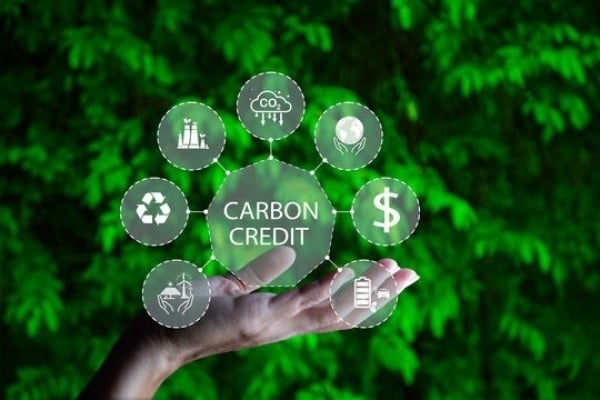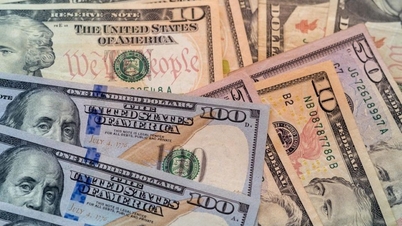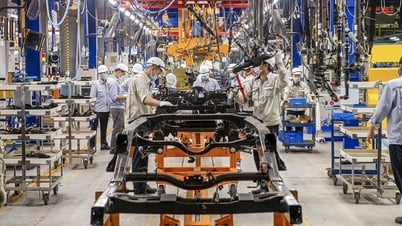 |
| Illustration |
However, the establishment of these two types of assets as collateral has not yet been specifically regulated in Vietnamese law. The article by Dr. Le Thi Giang ( Hanoi Law University) published in Banking Magazine No. 7, April 2025 analyzed the current legal status related to digital assets and carbon credits, thereby proposing a number of recommendations to improve the legal framework on this issue.
Digital assets are understood as assets that exist in digital form, which can include cryptocurrencies (Bitcoin, Ethereum, etc.), tokens (securities, utilities, etc.), NFTs, software, Big Data, etc. These are intangible assets that can be easily and transparently traded thanks to blockchain technology. The draft Law on Digital Technology Industry also provides a definition: Digital assets are digital technology products created, issued, stored, transferred and authenticated by Blockchain, which people have the right to own according to the provisions of civil law and related laws.
Carbon credit is understood as an emission certificate or emission quota..., allowing an entity to emit one ton of carbon dioxide (CO2) or carbon dioxide equivalent (CO2e). The Law on Environmental Protection 2020 stipulates that carbon credit is a certificate that can be traded and represents the right to emit one ton of CO2 or one ton of CO2e.
Despite being mentioned more and more, both digital assets and carbon credits have not been clearly recognized as collateral in legal documents such as the 2015 Civil Code or Decree No. 21/2021/ND-CP dated March 19, 2021 of the Government stipulating the implementation of the Civil Code on securing the performance of obligations. The lack of a specific legal framework makes banks hesitant to accept these types of assets as collateral. Currently, new regulations on collateral mainly apply to tangible assets or traditional assets such as real estate, vehicles, stocks, etc.
In the article, Dr. Le Thi Giang made a number of recommendations to soon perfect the law in the following directions: (i) Recognizing digital assets and carbon credits as assets in the Civil Code to serve as a basis for establishing secured transactions; (ii) Developing clear and specific definitions of digital assets and carbon credits in the legal system; (iii) Supplementing regulations on secured assets as digital assets and carbon credits in Decree No. 21/2021/ND-CP, determining appropriate types of transactions (e.g. Mortgage, deposit), procedures for processing, valuation, storage and monitoring of intangible assets; (iv) Strengthening the system of management, monitoring, valuation and protection of ownership of these types of assets to create peace of mind for subjects when participating in transactions.
Recognizing digital assets and carbon credits as collateral not only helps expand the source of collateral in financial transactions, but also contributes to promoting the development of the digital economy and green economy. Vietnamese civil law needs to have appropriate adjustments to keep up with international trends and create a solid legal basis to meet the requirements of practical life.
Along with being published in Banking Magazine No. 7, April 2025, Dr. Le Thi Giang's article will be published in the English version of the first Banking Magazine issue to be released in early May. We invite you to read it.
Source: https://thoibaonganhang.vn/hoan-thien-phap-luat-ve-tai-san-bao-dam-la-tai-san-so-tin-chi-carbon-162953.html




































































































Comment (0)